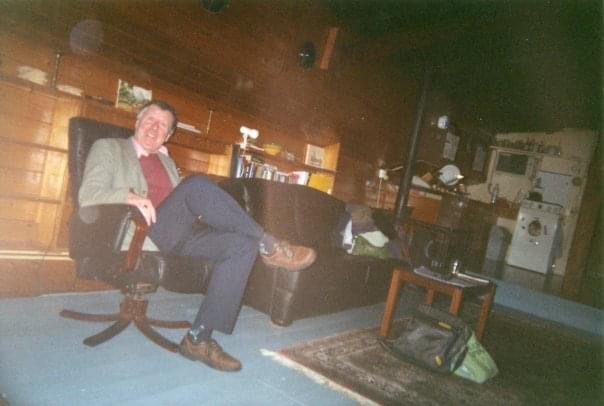Someone out there, please pick up a guitar and howl
Public services are being laid to waste and benefits shorn, but popular culture's voice of dissent remains strangely silent
For those of us who still spend far too much time thinking about what used to be called popular culture, these are fretful times. For more than two years, politics has been in a state of post-crash tumult. Now the government sets about what remains of the social fabric, with order papers waved aloft. And pop culture's response? Noncommittal, heavy on irony, essentially apolitical. By early 2011, we will have reached a litmus-test moment: if even the full arrival of austerity sparks nothing, we'll know we live in truly deadened times.
The signs aren't good. Aside from soap, the idea of mainstream TV and cinema concertedly portraying life at the blunt end now seems as old-fashioned as double-digit inflation. Comedy is no better. The woefully underrated Stewart Lee aside, most halfway successful comedians seem to cleave to a pretty depressing maxim: why meaningfully critique anything when you could be earning good money for boorish silliness on Mock the Week, selling out the O2 arena, and ensuring an autobiography with profanity in the title is doing brisk Christmas business at WH Smith? The same sense of washout prevails in popular fiction – can you imagine a latter-day Alan Sillitoe, Nell Dunn or Shelagh Delaney?
And so it goes: in the midst of public services laid waste, social cleansing via the benefits system, the tripling of the cost of higher education and even worse, the only thing that has so far united any significant number of "creatives" is the cutting of their own subsidies: a sad enough business, but one that creates a response that plays perfectly to the populist stereotype of a cloistered, decadent elite.
And what of pop music? These days, it too often feels like the spirit of dissent is the preserve of past generations, there to be reverentially saluted rather than reinvented. In the United States, one of the most talked-about albums of the season is Wake Up, by singer John Legendand the veteran hip-hop band the Roots – a misplaced attempt to crystallise the condition of modern America via reworkings of consciousness-stirring songs by such icons as Curtis Mayfield and Marvin Gaye, which comes off looking like an exercise in sepia-tinted radical chic.
We see a similar thing in the UK. When David Cameron began reminiscing about his love of the Jam, Paul Weller revived his 1979 class-war anthem Eton Rifles on tour ("All that rugby puts hairs on your chest / What chance have you got against a tie and a crest?"), but no one of any note has tried a modern equivalent. If rock history is kept in a glass case, it follows that a once-vibrant tradition of musical protest might be in there with it – so look, don't touch.
That said, four or five years ago musical social comment temporarily came back, and there was a run of stuff about crap jobs, smalltown tedium, and the thin rattle of small change. Thanks chiefly to the Arctic Monkeys, it momentarily defined the fashionable rock aesthetic circa 2006 – and even though the songs that resulted were free of any hardened politics, they were a start. But now, the modern scene looks to be divided between two schools of thought: art-for-art's sake (witness the comically abstract Manchester-based group Everything Everything – "So how will they remember us whole, when we turn into salt?" pleads a frantic song titled Qwerty Finger), and the quest for rustic authenticity that drives the ubiquitous Mumford & Sons – privately educated fans of John Steinbeck, though for his windswept romance rather than his sociopolitical bite. Neither approach holds out the promise of much anger or agitation: one would imagine that either of these artists could soundtrack a Saturday night soiree at Chequers.
So it is that one's thoughts once again turn bleak: when the Berlin wall fell and the gospel of no alternative took hold, maybe the culture was inevitably changed for keeps. And perhaps a good deal of the story lies in pop's own passage into middle-age and the fact that its various incarnations now span not just most of the planet but almost the entire generational range. Ubiquity may have robbed it of its old counter-cultural charge; as it turned out, perhaps what some romantics call the People's Music is better suited to selling mobile phones than soundtracking revolt. The upshot: if you have seditious thoughts, why would you express them via free-market capitalism's favourite art form?
Forty is far too old to be driven mad by any of pop music's supposed failings. But there are truths about our times that most politicians have no wish to tell, and songwriters should be feasting on: 18 millionaires in the cabinet; a war on the poor; the return of a born-to-rule elite, now clad in weekend casualwear and affecting glottal stops, but still reeking of grouse moors and arrogance. This is surreal, mind-boggling stuff. The last time anything comparable happened, my generation's response was couched in the vocabulary of the old left; now, I'd love to hear genuine 21st-century dissent.
To end, then, an appeal to some unknown neurotic outsider, stranded in God-knows-where, and minded to pick up a guitar and howl their outrage: please, prove me wrong.






